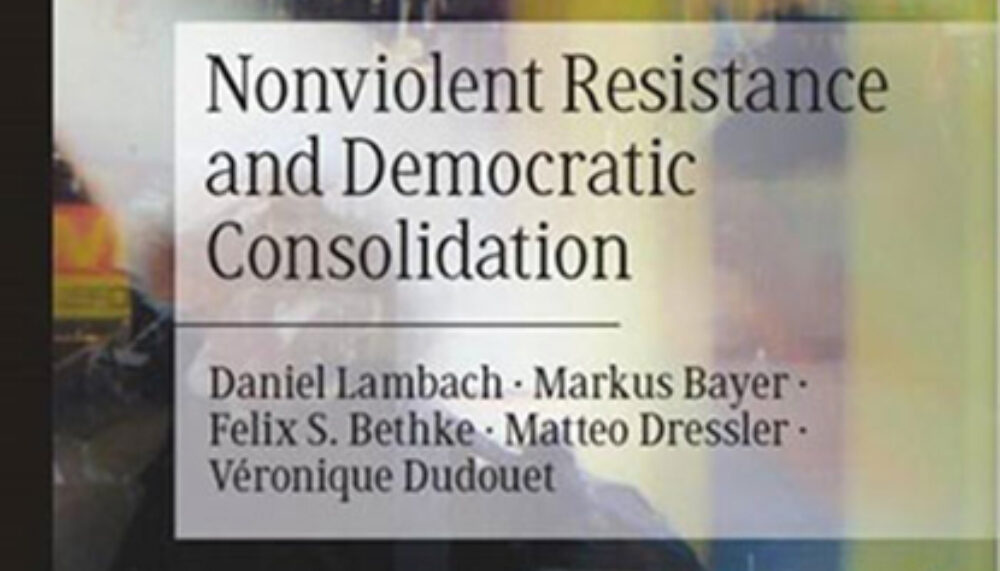BLOG POST | 3 Jun 2020
Do nonviolent revolutions lead to better democracies?
Nonviolent resistance is not just an effective means of deposing dictators. Our research shows it can also help consolidate democracy after the transition.
By Véronique Dudouet
‘People power’ nonviolent revolutions are initiated by ordinary citizens who dream of inclusive democracy in the face of repressive and authoritarian regimes. Such were the aspirations of Sudanese and Algerian grassroots activists who achieved outstanding victories over autocracy in 2019. However, they now face the daunting challenge of transitioning to sustained democracy – by building legitimate and representative institutions, cultivating a culture of civic participation and protecting the newly gained freedom from authoritarian backlash.

These challenges lie at the heart of the research questions explored in a new book – Nonviolent Resistance and Democratic Consolidation – published by Palgrave Macmillan, which presents the outcomes of a joint research project funded by the German Research Foundation (DFG).
This project was jointly conducted by a team of political scientists at the University of Duisburg-Essen (Institute of Political Science) and the Conflict Transformation Research team at Berghof Foundation.
In 2016 we embarked on a collaborative mixed method enquiry to address an ambitious research question, namely: Are democracies emerging out of nonviolent protest better able to achieve democratic consolidation than those that came about through elite pacts or armed insurrection? If so, what are the underlying mechanisms that influence the durability and quality of democracy in bottom-up nonviolent-led transitions?
Democratic transitions emerging from peaceful protest movements last longer and achieve higher levels of democratic quality...
Our quantitative findings are unequivocal: we found strong statistical evidence that democratic transitions emerging from peaceful protest movements last longer and achieve higher levels of democratic quality than transitions precipitated by armed conflict or top-down liberalisation. Nonviolent resistance is not just an effective means of deposing dictators; it can also help consolidate democracy after the transition from autocratic rule.
Drawing on six qualitative case studies in Africa and Latin America, including Chile and Benin as two outstanding cases of nonviolent transitions of power, we found that:
- Nonviolent revolutions help to level the political playing field after the transition by creating a political environment more conducive to multi-party competition;
- The legacy of peaceful mobilisation enhances government accountability by promoting civic activism and providing a symbolic reference point for future re-mobilisation when democracy comes under threat;
- Nonviolent-led transitions avoid the praetorian problem of the military getting too involved in politics, by working towards healthier civil-military relations.
At the same time, the cases of Chile and Benin reveal some important nuances on the features of political settlements, which affect the long-term legacy of democratic change. In particular, a rapid demobilisation of organised civil society (from the streets to the polls) may precipitate its co-optation or sidelining by traditional and emerging elites.
At the other end of the spectrum, the exclusion of former rulers in decision-making arenas over the new rules of the game may turn them into future ‘spoilers’. Therefore, further research is needed to better understand the role of inclusive negotiation and dialogue mechanisms during democratic transitions. We are currently pursuing this line of enquiry through a follow-up research project in cooperation with Jonathan Pinckney from the U.S. Institute of Peace. Stay tuned for more information on our future findings!
Media contact
You can reach the press team at:
+49 (0) 177 7052758
email hidden; JavaScript is required


